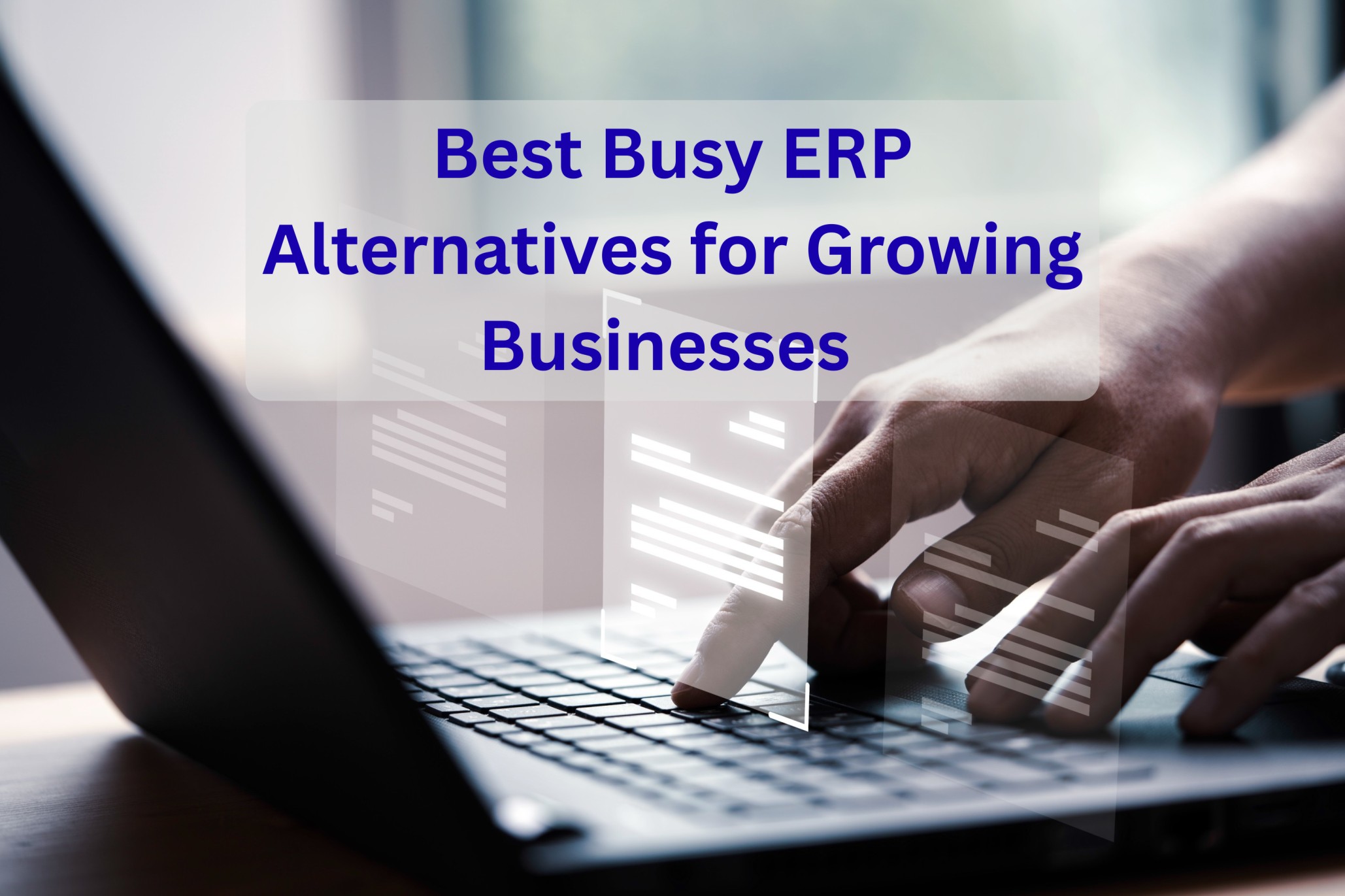- TL;DR
- Best ERP for Apparel Manufacturing in Sri Lanka (2026)
- Apparel ERP Sri Lanka: Key Challenges That ERP Solves
- Top 5 ERP Solutions for Apparel Manufacturing in Sri Lanka (2026)
- Apparel ERP comparison: Top 5 ERP Software for Apparel Industry in Sri Lanka
- How to Choose the Right ERP for Your Apparel Business?
- Apparel Manufacturers Using Acumatica Cloud ERP
- Conclusion
TL;DR
Sri Lanka’s apparel industry needs speed, traceability, and automation. ERP systems are now vital to manage complex production, costing, and compliance.
Top 5 ERPs:
-
Acumatica Cloud ERP – Best overall; apparel-specific, scalable, and locally supported by Blue Lotus 360.
-
Odoo ERP – Flexible and affordable for startups.
-
SAP Business One – Strong for large exporters, but costly.
-
Microsoft Dynamics 365 – Enterprise-grade with Microsoft integrations.
-
Oracle NetSuite – Advanced global ERP for large, multi-site firms.
Why choose Blue Lotus 360 + Acumatica:
– Apparel-focused modules (cutting, stitching, costing).
– Local support in Sinhala/Tamil/English.
– Cloud-based, fast to deploy, real-time insights.
Bottom line:
For 2026, Acumatica with Blue Lotus 360 is the smartest ERP choice for Sri Lankan apparel manufacturers aiming for global efficiency and compliance.
Best ERP for Apparel Manufacturing in Sri Lanka (2026)
In 2026, the apparel industry will be an essential contributor to the economy of Sri Lanka. The industry is entrenched in quality production, ethical practices, and prompt delivery, and it caters to a large number of global markets. But manufacturers are constantly under pressure. Buyers are asking for faster shipping, improved compliance, real-time reporting, and cost savings.
Apparel companies require digital transformation to address these needs. And that’s where ERP (Enterprise Resource Planning) systems come in. An effective ERP system serves as a liaison between raw materials and shipments. It enhances tracking, planning, costing, decision-making, etc.
We will introduce the 5 best ERP for textile industry Sri Lanka. Each ERP has its strengths, and we’ll help you choose the one that best fits your business needs.
Apparel ERP Sri Lanka: Key Challenges That ERP Solves
Apparel manufacturing is highly complex. There may be many styles, sizes, and colors for a single item. This is hard to keep clear and error-free.
These are some of the main problems that an ERP overcomes:
- Multi-layered and complex BOMs with fabric, lining, accessories, trims, etc.
- Thousands of Size and Color combinations to manage
- Setting up jobs when they are due to be completed.
- From order through track & trace to delivery
- Tracking raw materials and goods in multiple warehouse locations
- Managing various suppliers for fabrics, labels, and packing
- Meeting audit, CSR, and buyer standards
- Real-time tracking of expenses to maintain profit margins
- Working with PLM, CAD tools, and shipping platforms
An ERP system like Blue Lotus 360, built for Sri Lankan businesses, handles all of these while ensuring local tax and compliance support.
Top 5 ERP Solutions for Apparel Manufacturing in Sri Lanka (2026)
Looking for the Best ERP for garment manufacturing? Let’s look at the top 5 ERP software options for garment businesses in Sri Lanka, based on usability, features, support, and industry fit.
I. Acumatica Cloud ERP
Acumatica is a modern, cloud-based ERP platform that offers robust industry-specific solutions for apparel and fashion manufacturers. With integrated tools for inventory control, production planning, financials, and omni-channel commerce, it empowers apparel companies to manage complex operations, respond quickly to market changes, and scale with ease. Its flexible architecture and mobile accessibility make it an increasingly popular choice among Sri Lankan manufacturers looking to modernize operations.
Key Features for the Apparel Industry:
- Integrated Product Configurator
- Inventory Management
- Order and Production Management
- Omnichannel Retail Integration
- Mobile Access & Dashboards
- Financial Management
Pros:
- Scalable for growing apparel businesses
- Cloud-native with flexible deployment options
- Highly customizable with industry-specific add-ons
- Strong mobile capabilities and user-friendly dashboards
- Integration with eCommerce and logistics platforms
Cons:
- Requires partner/custom implementation for niche apparel workflows
- Pricing can increase with user volume and modules added
Ideal For:
Small to mid-sized apparel exporters. It is best for those seeking a full-featured, local ERP
Pricing/Support:
Cost-effective for SMEs; includes local support and training
ii. Odoo ERP
Odoo is a versatile and open-source enterprise resource planning (ERP) software used to manage your company’s resources. It’s extremely customizable and great for small stores with a small amount of apparel. You will get applications from CRMs, sales, accounting, inventory, and more. The comprehensive suite of open-source business management applications has a vast community of developers. So, you will get updated apps to make things easy.
Key Features for the Apparel Industry:
- You can add features
- Integration between inventory, MRP, sales, finance, etc
- Custom BOM and routing workflows
- Open CAD and eCommerce APIs
- Visual dashboards and KPIs
Pros:
- Very affordable and flexible
- Scalable as your business grows
- Large global community and plugins
- Great to mess around with other plugins
Cons:
- Not apparel-specific by default
- You need to hire experienced developers to customize
- Limited local support in Sri Lanka
- It can become hard to manage as complexity grows
Ideal For:
Ideal for mid to large-scale apparel manufacturers seeking a flexible, cloud-based ERP to manage complex product variants, streamline production, and integrate with multi-channel retail platforms.
Pricing/Support:
Usage-based pricing model with 24/7 support via partners and online resources.
iii. SAP Business One
SAP B1 is a powerful ERP system used by companies globally. It’s optimal for major apparel exporters in Sri Lanka that require a tight grip over ports and global connectivity.
Key Features for the Apparel Industry:
- Advanced manufacturing and supply chain technologies
- Production planning and warehouse automation
- Finance, costing, and taxation tools
- Audit trail and compliance management
- It can be integrated into other global platforms such as Shopify, Amazon, etc.
Pros:
- Trusted by global brands
- Strong for export-oriented businesses
- Excellent financial controls and analytics
- Multi-currency and multi-company support
Cons:
- Very expensive licenses and installation costs
- Requires long-term implementation
- Requires a worldwide SAP service provider or consultant
- Limited flexibility for small companies
Ideal For:
Large exporters and multinational manufacturers with high-volume output
Pricing/Support:
Expensive; international support partners required
iv. Microsoft Dynamics 365 (F&O / Business Central)
Microsoft Dynamics 365 is a cloud-based ERP and CRM offering. It also provides flexibility and intelligent analytics for bigger apparel companies.
Key Features for the Apparel Industry:
- Integrated operations, finance, HR, and inventory system
- Integrations: Microsoft Teams, Excel, Power BI
- Control of fabrication via BOM and resource planning
- Customer insights and sales forecasting
- Real-time dashboards for performance tracking
Pros:
- Modern and user-friendly interface
- Powerful analytics and automation tools
- Strong security and scalability
- Available on Azure Cloud
Cons:
- Expensive and requires experienced implementation
- Apparel-specific features must be custom-built
- Global consultants are often needed
Ideal For:
Large garment factories and enterprises. It best if you are using Microsoft infrastructure
Pricing/Support:
High cost; global or regional Microsoft partners needed for support
V. Oracle NetSuite
Oracle NetSuite is a cloud-based ERP solution trusted globally, offering comprehensive tools tailored to streamline operations in the apparel and fashion industry, from design to delivery.
Key Features for Apparel Industry:
- Inventory and supply chain management
- Product lifecycle management
- Order and demand planning
- Real-time financials and reporting
- Omnichannel commerce integration
- Support for multi-location, multi-currency, and multi-subsidiary operations
Pros:
- Scalable and highly customizable
- Strong reporting and analytics
- Global compliance features
- Seamless integration with eCommerce platforms
Cons:
- Higher learning curve for new users
- Cost may be high for small businesses
Ideal For:
Mid to large-scale apparel manufacturers with complex supply chains and global operations.
Pricing/Support:
Subscription-based pricing; cost varies by modules and user count. Support includes online help, partner support, and premium service options.
Apparel ERP comparison: Top 5 ERP Software for Apparel Industry in Sri Lanka
| ERP System | Ideal For | Apparel Features | Deployment | Localization | Support Level | Cost |
| Acumatica | Growing SMEs | ✔️✔️✔️✔️ | Cloud
|
Medium | Medium – 3rd Party | $$$ |
| Odoo | Startups / Small Firms | ✔️✔️✔️ | Cloud / On-Prem | Medium | Medium – 3rd Party | Mid-range |
| SAP B1 | Enterprise / Exporters | ✔️✔️✔️✔️ | On-Prem / Cloud | Low | High – Global Support | $$$$ |
| Dynamics 365 | Large Enterprises | ✔️✔️✔️✔️ | Cloud | Low | High – Global Support | $$$$ |
| Oracle NetSuite | Large Enterprises | ✔️✔️✔️✔️ | Cloud | Medium | High – Global Support | $$$ |
How to Choose the Right ERP for Your Apparel Business?
Choosing the right ERP system is a critical step for any apparel manufacturer. The wrong choice can delay production, waste money, and confuse your staff. The right ERP, on the other hand, can increase efficiency, improve accuracy, and boost profits.
Here are six key factors to evaluate before making a decision:
1. Scalability
Your business might be small today, but it can grow quickly. Your ERP system must grow with you.
- Can it handle more users as your team expands?
- Can it support new locations or warehouses?
- Can you add more modules later (such as payroll, finance, or eCommerce)?
A scalable ERP helps avoid expensive migrations in the future. Look for systems that can support both small operations and growing enterprises.
2. Industry Fit
Not all ERP systems are designed for the apparel industry. Some are too generic. Others need heavy customization. This wastes time and increases costs.
Apparel manufacturing is unique. It involves:
- BOMs with multiple sizes, colors, and styles
- Frequent design changes
- Managing fabric rolls and wastage
- Production stages like cutting, stitching, finishing, and packing
- Tracking subcontracted work
- Labeling, packing, and export compliance
Choose an ERP system with built-in features for garment factories. Solutions like Acumatica, implemented by Blue Lotus 360, come with powerful apparel-specific functionalities, so you don’t need to reinvent the wheel. With industry-ready modules and local expertise, it’s a smarter, faster way to digitalize your operations.
3. Local Support
Even the best ERP system will run into issues. You need help when that happens. Local support makes a big difference. You won’t have to wait for answers from another country or struggle with language barriers.
Ask the following:
- Does the ERP vendor offer support in Sinhala or Tamil?
- Can they visit your factory for training?
- Do they understand Sri Lankan taxes and export rules?
- Is the support team available during your working hours?
Blue Lotus 360, as an authorized Acumatica implementation partner, provides full local support onsite or remote. Their team understands the unique challenges faced by Sri Lankan apparel exporters and offers guidance in your language.
4. Integration Capability
An ERP system should not work alone. It must connect with the other tools you use. For apparel companies, this includes:
- CAD software for pattern design
- PLM tools for style development
- POS systems if you sell locally
- Shipping platforms for logistics
- E-commerce sites like Shopify or Amazon
- Accounting software
- Excel or BI tools for reports
Integration is key to saving time and reducing data errors. Acumatica supports open APIs and a wide range of plug-ins for seamless connectivity. With Blue Lotus 360 as your implementation partner, custom integrations can be developed to match your unique business needs.
5. Cost Structure
ERP pricing can be confusing. Some charge a monthly fee (subscription). Others ask for a one-time license plus maintenance. Be clear about:
- Initial setup and implementation costs
- Monthly or annual fees per user
- Customization costs
- Support and upgrade fees
- Hidden charges for extra modules or training
As a cloud-based ERP, Acumatica offers lower upfront costs and faster ROI, especially for SMEs through its subscription-based pricing model. With Blue Lotus 360 as your local implementation partner, you gain flexible pricing options, transparent cost breakdowns, and no hidden fees.
6. Ease of Use and Training
Your factory team will use the ERP daily. If it’s hard to learn, they will avoid it or make mistakes. Look for a system with:
- Clean, simple user interface
- Mobile access for field or shop floor staff
- Role-based dashboards (different views for managers, workers, finance team, etc.)
- Easy data entry and reporting tools
Also, check if the vendor offers training sessions, user manuals, or help videos. As an Acumatica partner, Blue Lotus 360 provides comprehensive training for your team, both online and onsite, to ensure smooth adoption and confident usage.
Why Choose Blue Lotus 360 as Your Acumatica Partner?
For Sri Lankan apparel manufacturers, Blue Lotus 360 brings deep industry expertise and localized support to your Acumatica ERP implementation:
- Apparel-specific functionalities: cutting, stitching, WIP, costing, quality audits
- Local support in Sinhala, Tamil, and English
- Faster go-live timelines, weeks, not months
- Seamless integration with local regulatory and export systems
- Secure, cloud-based platform with role-based access
- Mobile-ready dashboards for factory and management teams
As Acumatica’s trusted local partner, Blue Lotus 360 helps you harness global ERP power with local relevance, minus the complexity of heavyweight systems like SAP or Oracle Netsuite.
Apparel Manufacturers Using Acumatica Cloud ERP
Case Study Example: Real-Life Apparel Industry Users
“Acumatica tracks inventory in the right categories for us and provides for drill down to see the specifics on what’s behind the number. Acumatica is already doing more than our last system could, giving us a competitive edge.” Holt Condren, Co-Founder & CEO, Ink
“Acumatica is our one-stop shop for everything from accounting to inventory to sales to purchasing and so on. For technology to work well without hacks or workarounds is rare, and Acumatica works really well.” Craig Matusinksi, eCommerce & Social Media Director, Kevins Worldwide
“With Acumatica, we can track inventory in real-time knowing where each item is. Whether it’s in the production flow, whether it’s in raw material stores, or whether it’s in transit. Having real-time inventory tracking and understanding where it is located in the factories is very important to us. With accurate inventory and costs, we can see how materials are allocated to orders and styles as well as where it’s at in the process. We can also see when items have been shipped.” Devin Samayamanthri, Chief of Staff, Design Studio
Conclusion
In 2026, ERP systems are no longer a luxury for apparel manufacturers in Sri Lanka, they are a must. Global buyers expect fast delivery, full traceability, and compliance with international standards. Without digital tools, your business risks falling behind.
ERP helps you:
- Plan and track production
- Control inventory and reduce waste
- Improve costing and profitability
- Stay compliant with audits
- Meet buyer timelines
- Make better decisions with real-time data
Among global ERP solutions, Acumatica stands out as a powerful choice for apparel manufacturers. And with Blue Lotus 360 as your implementation partner in Sri Lanka, you get the best of both worlds, world-class ERP technology with expert local support.
Whether you’re just starting or scaling your operations, Blue Lotus 360 helps you leverage Acumatica to streamline production, reduce errors, and boost factory performance.
Book a free demo with an Apparel ERP expert at Blue Lotus 360 to see how Acumatica can transform your business. From resolving production delays and costing inconsistencies to simplifying compliance audits, this tailored ERP solution is built to meet the demands of the apparel industry.
The team at Blue Lotus 360 understands the unique challenges of Sri Lankan garment manufacturers, offering support in Sinhala, Tamil, and English, along with quick deployment and training.
Future-proof your factory with Acumatica, powered by Blue Lotus 360. Schedule your free consultation today and take the first step toward smarter apparel manufacturing.














